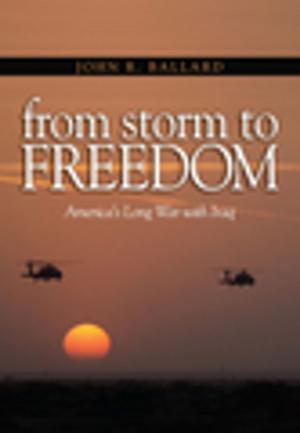| Author: | Cathryn J. Prince | ISBN: | 9781612513478 |
| Publisher: | Naval Institute Press | Publication: | August 12, 2015 |
| Imprint: | Naval Institute Press | Language: | English |
| Author: | Cathryn J. Prince |
| ISBN: | 9781612513478 |
| Publisher: | Naval Institute Press |
| Publication: | August 12, 2015 |
| Imprint: | Naval Institute Press |
| Language: | English |
Shot from the Sky is about one of the great, dark secrets of World War II: Neutral Switzerland shot down U.S. aircraft entering Swiss airspace and imprisoned the survivors in internment camps, detaining more than a thousand American flyers between 1943 and the war’s end. While conditions at the camps were adequate and humane for internees who obeyed their captors’ orders, the experience was very different for those who attempted to escape. They were held in special penitentiary camps in conditions as bad as those in some prisoner-of-war camps in Nazi Germany. Ironically, the Geneva Accords at the time did not apply to prisoners held in neutral countries, so better treatment could not be demanded. When the war ended in Europe, sixty-one Americans lay buried in a small village cemetery near Bern.
Details of this little-known episode are brought to light by Cathryn Prince, who tells what happened and examines the argument the Swiss used to justify their policy. She shows that while the Swiss claimed they satisfied international law, they applied the law in a grossly unfair manner. No German airmen were interned, and the Nazi aircraft were allowed to refuel at Swiss airfields. The author draws on first-person accounts and unpublished sources, including interviews with eyewitnesses and surviving American prisoners, and documents held by the Swiss government and the U.S. Air Force. Although these events have been briefly alluded to in other books, this is the first time that the complete story has been presented.
Details of this little-known episode are brought to light by Cathryn Prince, who tells what happened and examines the argument the Swiss used to justify their policy. She shows that while the Swiss claimed they satisfied international law, they applied the law in a grossly unfair manner. No German airmen were interned, and the Nazi aircraft were allowed to refuel at Swiss airfields. The author draws on first-person accounts and unpublished sources, including interviews with eyewitnesses and surviving American prisoners, and documents held by the Swiss government and the U.S. Air Force. Although these events have been briefly alluded to in other books, this is the first time that the complete story has been presented.
Shot from the Sky is about one of the great, dark secrets of World War II: Neutral Switzerland shot down U.S. aircraft entering Swiss airspace and imprisoned the survivors in internment camps, detaining more than a thousand American flyers between 1943 and the war’s end. While conditions at the camps were adequate and humane for internees who obeyed their captors’ orders, the experience was very different for those who attempted to escape. They were held in special penitentiary camps in conditions as bad as those in some prisoner-of-war camps in Nazi Germany. Ironically, the Geneva Accords at the time did not apply to prisoners held in neutral countries, so better treatment could not be demanded. When the war ended in Europe, sixty-one Americans lay buried in a small village cemetery near Bern.
Details of this little-known episode are brought to light by Cathryn Prince, who tells what happened and examines the argument the Swiss used to justify their policy. She shows that while the Swiss claimed they satisfied international law, they applied the law in a grossly unfair manner. No German airmen were interned, and the Nazi aircraft were allowed to refuel at Swiss airfields. The author draws on first-person accounts and unpublished sources, including interviews with eyewitnesses and surviving American prisoners, and documents held by the Swiss government and the U.S. Air Force. Although these events have been briefly alluded to in other books, this is the first time that the complete story has been presented.
Details of this little-known episode are brought to light by Cathryn Prince, who tells what happened and examines the argument the Swiss used to justify their policy. She shows that while the Swiss claimed they satisfied international law, they applied the law in a grossly unfair manner. No German airmen were interned, and the Nazi aircraft were allowed to refuel at Swiss airfields. The author draws on first-person accounts and unpublished sources, including interviews with eyewitnesses and surviving American prisoners, and documents held by the Swiss government and the U.S. Air Force. Although these events have been briefly alluded to in other books, this is the first time that the complete story has been presented.















